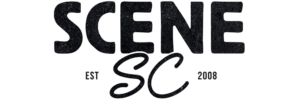Frontier Ruckus will be playing tomorrow night in Charleston at Pour House (1977 Maybank Hwy) with Cary Ann Hearst. We had a chance to catch up with them and talk about their current tour, their albums, and what’s next for Frontier Ruckus.
1)Â Describe your music for those who aren’t familiar.
Musically, the main elements are: acoustic guitar, banjo, brass, saw, bass, reeds, and gyrating percussion beneath a passionate delivery of language through sometimes emphatic and at other times desperate vocal chords, frequently in harmony. You can expect long songs with long lists of icy or sweating weather, types of parking lots, snow-plowed dealerships in lamplight, blinding interiors of CVS drugstores, bowling alleys, K-8 Catholic schools, etc. to convey obsessively thorough depictions with occasionally nightmarish imagery. The most recurring general themes are the vague and tenuous identities or conditions of: human pathos, home, love, family, the blurry gradient between locality and foreign estrangement, and the constant present-tense production of memory.
2) What are some of your favorite parts about the music scene that you come out of? What are some things that you wish you could change about the music scene?
The people here who have entered our little world have a unique faculty to access the particulars and geography of that world, as they themselves share it and live within the actual locality from which it is derived. It was with them and for them that we began to recite this common life of existential cartography. And we continue to do so. There is nothing like a home-state show, for that very reason. The energy and level of understanding is rare and exceptional. We love the Michigan scene for the invaluable nourishment it granted us during the development of our identity. If I were to change anything, I don’t know–I might care to reduce the sense of competition some people seem to insist upon promoting. Also, if you lift your ear, it’s possible to experience shit-talking going in every which direction between very incommensurable types of art. Some people like graphic novels and some people like Whitman. Many like both. And someone else might want a comic strip illustration of the Body Electric. Whatever–to each his own. Just find your bag(s) and embrace it (them). Not everyone is going to get what you do, especially if it emanates from an incredibly internal and complicated source. Let others exist within their bags and realize they’re just different interests with no need for an exchange of lazy and impotent commentary.
3) You seem to have a pretty rigorous touring schedule, how has that impacted you as far as writing and recording new material goes?
It’s made me cherish the condensed amount of time that we have to spend at home. So, by the time I get home I’m just starving for a refamiliarization with my world and its contents. And then the rush that I get from the subsequent binge consumption of home and familiarity (from driving around endlessly, going for meandering walks, waking up in the same bed every day) produces something like a sugar high of inspiration and creative necessity to shape it into something organized that I can memorialize and protect. It’s makes me want to write like nothing else. It creates an irrepressible need to capture the subliminal conditions of my surroundings. It is based within a profound fear of my personal kingdom slipping off into a black wake of the past without any record or preservation.
4) Speaking of tour, what’s the most ridiculous thing that you’ve seen while on the road?
An indignant 25-year-old decrepit dinosaur-like goose being cradled by its kind and motherly owner in the Netherlands.
5) I read in an interview that your first release, Orion Songbook, can been viewed as a chronicle of your entire life up to that point and your second, Deadmalls and Nightfalls, can be related to a more specific time in your life. How does this compare to material you are writing now?
It is now and forever will be, in the simplest terms, a continuation of that chronicle which The Orion Songbook began. The difference is that we are now working within a much more specific and particular space and time. And I love that. It permits me to write about things with great microcosmic detail and in-the-moment conviction. I’m in the bedroom or the bathroom now, investigating the filthy corners and lids, as opposed to canvasing the endless backyard. I have fallen madly in love with the particular. And within each naked particular that I include, I firmly believe that the enormous universal exists.
6) You make a lot of references to different places in Michigan in both releases, it has obviously impacted you heavily. In what ways has growing up in Michigan influenced you as a writer?
My local landmarks are the psychological markers by which I pin down my entire reality, memory, experience–for better or worse. I obsess over them endlessly and and am constantly engaged in the impossible self-prescribed task of cataloguing them, documenting their configurations and the complex ways in which they house my past. I’ve actually become even slightly frightened by the intensity by which I feel compelled to process and inextricably bind myself to this world, with a weird fantasy to make my own body a physical extension of my slushy suburban strip-mall landscape.
7) What’s next for Frontier Ruckus?
Touring the majority of the US this spring and heading back to Europe for most of May. Collecting the new songs that are drizzling in at a gradual yet unyielding rate. That’s the most exciting aspect for us–the continual process of building on this ongoing project. They’re all little worlds that connect together in a greater image of subconscious connection. We cannot wait to begin construction on what will be our third LP. We have great plans and aspirations for its parameters. It will hopefully be an overflowing container of existential fluid, slowly freezing in the frigid and sterile winter night!




